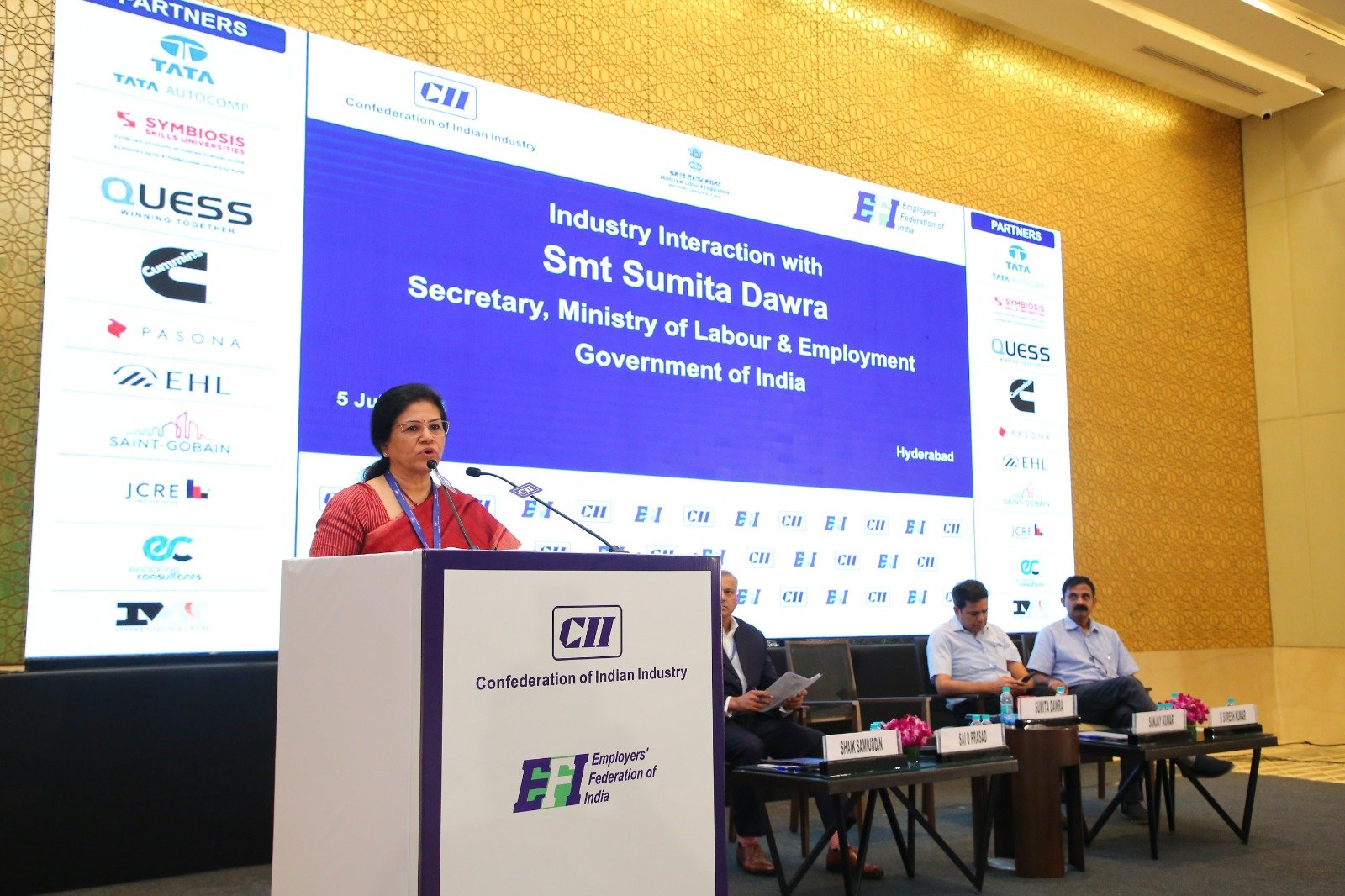Hyderabad: Sumita Dawra, Secretary, Ministry of Labour & Employment, Government of India, participated in an industry interaction organized by the Confederation of Indian Industry (CII) and the Employers’ Federation of India (EFI) in Hyderabad. The event focused on the significant strides India has made in labour reforms and employment generation, aiming to foster dialogue between government officials and industry stakeholders.
In her inaugural address, Smt. Dawra highlighted India’s rapid growth rates and emphasized the importance of the country’s demographic dividend and labour reforms as pivotal drivers of future growth. She pointed out that these factors, alongside the expansion of manufacturing, service sectors, and infrastructure, are crucial for India’s economic development.
Citing the RBI’s KLEMS data, Dawra mentioned that about 8 crore new employment opportunities were created in India over the past five years ending in 2021-22. This growth was largely driven by various government initiatives such as the Production Linked Incentive (PLI) scheme, Make in India campaign, and increased access to microcredit and investments. The emergence of new sectors like Gig and Platform workers, Global Capability Centres (GCCs), and startups also contributed significantly. She further highlighted that the gig economy is projected to employ around 2.3 crore people by 2030.
Dawra discussed the consolidation of 29 labour laws into four comprehensive codes aimed at simplifying regulations and administrative processes. This includes the decriminalization of labour laws, enhancing the ease of doing business, and reducing compliance burdens. These reforms are expected to attract increased domestic and foreign investments, integrate supply chains, and enhance global value chains in India. She emphasized that these reforms would stimulate the economy, increase employment opportunities, boost female workforce participation, and improve social security and labour welfare, driving inclusive growth. Dawra projected that India’s GDP, currently over USD 3 trillion, could reach USD 33 trillion by 2047 through these initiatives.
Addressing social security, Dawra underscored the importance of expanding coverage for the unorganized and informal sectors. She recognized the need for governance reforms in the Employees’ State Insurance Corporation (ESIC) and the Employees’ Provident Fund Organisation (EPFO). Various systemic reforms in ESIC and EPFO, such as auto settlement of claims, reduction in rejections, and improving the pace of claims settlement, were highlighted. Enhancing the coverage and quality of services in ESIC was also discussed.
During the interaction, presentations on digitization, e-governance, and compliance simplification in ESIC and EPFO were made. These discussions aimed to gather suggestions from participants to further improve these systems. The National Career Service (NCS) portal of the Ministry of Labour and Employment was showcased as a comprehensive solution for career counselling and employment networking. It was noted that over 1 crore vacancies were mobilized on the NCS portal during 2023-24. The portal is integrating the SIDH database from the Ministry of Skill Development and Entrepreneurship to ensure a rich pool of skilled job seekers, reducing the skill gap in the labour market.





